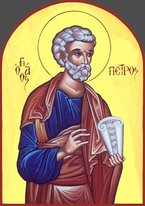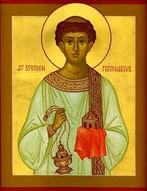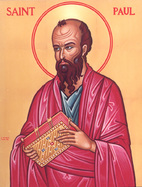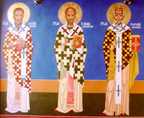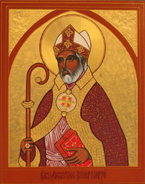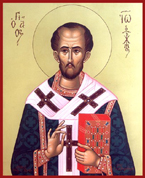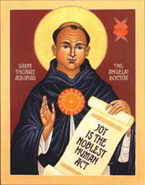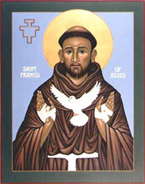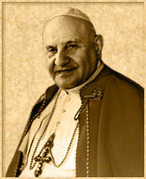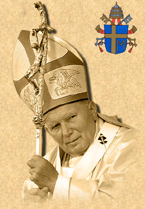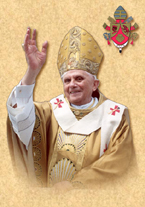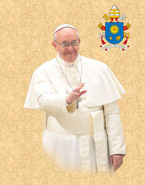|
Several months ago, I engaged rather intensively with some of the liturgical writings of the Holy Father, Pope Benedict XVI. Quoting some of the salient points mentioned in some of his writings on the liturgy, I commented on them, particularly on realities pervasive in the liturgical life of the local Church. I suppose by now, enough has been said to enable further reflection on the part of those who truly love the liturgy and are committed to the life of the Church as the worshipping community. Therefore, this may be construed as the concluding installment to the entire series which I have named "Liturgical Contemplations". In this installment, I address what must be the biggest crisis of the Catholic Church today (biggest, for the simple reason that the liturgy is the greatest act of the Church, and should therefore be where supreme orthodoxy is to be found, but is sadly often not found): liturgical disintegration. I am convinced that the crisis in the Church that we are experiencing today is to a large extent due to the disintegration of the liturgy, which at times has even come to be conceived of etsi Deus non daretur: in that it is a matter of indifference whether or not God exists and whether or not He speaks to us and hears us. But when the community of faith, the world-wide unity of the Church and her history, and the mystery of the living Christ are no longer visible in the liturgy, where else, then, is the Church to become visible in her spiritual essence? Then the community is celebrating only itself, an activity that is utterly fruitless. And, because the ecclesial community cannot have its origin from itself but emerges as a unity only from the Lord, through faith, such circumstances will inexorably result in a disintegration into sectarian parties of all kinds - partisan opposition within a Church tearing herself apart. This is why we need a new Liturgical Movement, which will call to life the real heritage of the Second Vatican Council. [Milestones: Memoirs 1927-1977 (SF, CA: Ignatius), p. 149.] Commentary: In Asia, we probably do not have liturgical disintegration borne of etsi Deus non daretur ("as if God did not exist"). Undoubtedly, liberalism has crept into the Church in Asia, especially among members of her hierarchy who have been trained in the West. However, the situation is probably not so dire that these clerical students return denying God's existence (although denying God's power to act in the present might be a different consideration).
However, a liturgical crisis of another sort does exist, whereby too much of the celebrant's personality and tastes are brought into the liturgical celebration. If the liturgy is to be a celebration of Christ and His sacrifice for His beloved Church, then the celebrant, his assistants, his collaborators and all the lay faithful need only to allow Christ to shine. This calls for nothing more and nothing less than self-effacement. In the face of a lack thereof, strange practices like singing "solo numbers", bringing in fancy liturgical dances, playing music that reflects the banal and sensationalistic mood of popular culture, and anything else that speaks of personal preferences and all that is alien to the liturgical sensibilities of our Sacred Tradition are brought into the liturgy. It is at this point that the liturgy is rendered a parody of a celebration rather than being an authentic celebration of the One whose action it is. We cannot, however, also be so naive to assume that the extreme reaction against this, which has often led to an argument solely in favour of the Tridentine Mass (as if that were the original Mass, and as if there were no abuses during the era of the Tridentine Mass), contains no potential abuses. In exalting the Tridentine Mass as the only way and the only solution to the present liturgical crisis, we may have just pandered to the same inclination to exalt the cult of performance. When preferences and such subjective arguments present themselves, they are often caused by the self which gets in the way of liturgical authenticity, whether it be the Mass of Paul VI or the Tridentine Mass. At the same time, we need to be extremely cautious about accepting new things, which has been said, are alien to the liturgical sensibilities of our Sacred Tradition. What more, when these things are often assimilated in the liturgy in place of age old liturgical disciplines. As advised by the Holy Father, "...mistrust is always in order when a large part of the living history has to be thrown onto the garbage dump of discarded misunderstandings. This is all the more true for the Christian liturgy, which lives from the continuity and inner unity of the history of religious prayer." [A New Song for the Lord (NY: Crossroad, 1995) p. 141] It is apt to conclude this lengthy reflection series with the very words of the Holy Father himself: "...we need a new Liturgical Movement, which will call to life the real heritage of the Second Vatican Council." [Milestones: Memoirs 1927-1977 (SF, CA: Ignatius), p. 149.]
0 Comments
Leave a Reply. |
Categories
All
Archives
December 2021
|
|
FOLLOW DEACON SHERMAN DEACON'S FORMATION FB GROUP
© 2021 Sherman Kuek. All rights reserved.
|

 RSS Feed
RSS Feed
